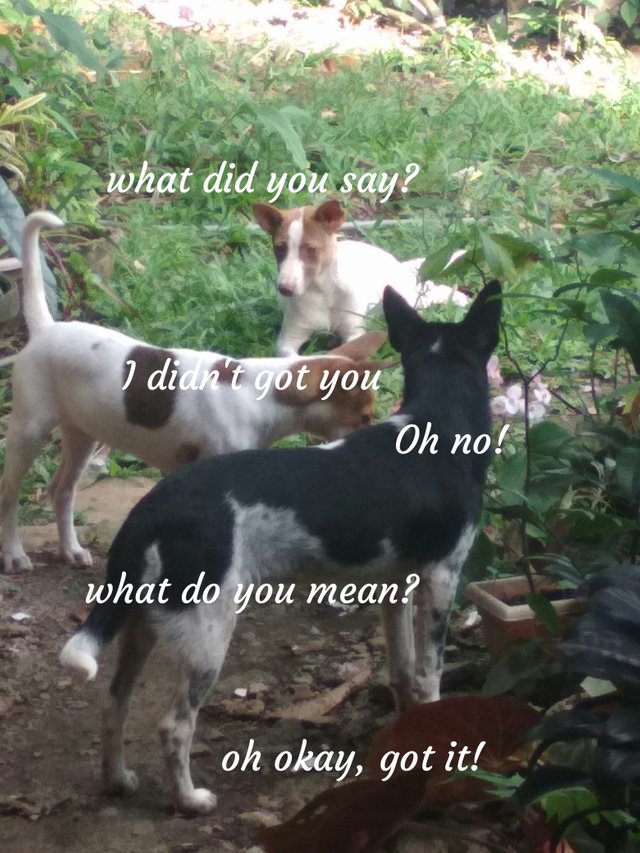
Have a nice day everyone! Today's theme is about our favorite Languages. Yes, language is very relevant in our everyday lives.
Miscommunication is such an unpleasant experience especially when he/she meant something and you think the other way around.
More often than not, you enjoy listening to someone talking in other languages watching and listening to them in awe. Sometimes, I wonder how the different languages were developed a long time ago.
Language barrier could be the reason because of misunderstanding and it could even result to more serious problems like war. You know guys, in times like this when we can't understand each other, the best thing to do is through sign language.
I find it fascinating when hubby and I went to a kiosk in Manila Garden. I have observed that the service crew were all deft-mute yet they understand each other through sign language.
In our country, we have Tagalog and English as our national language, in order for us to understand each other. The main reason is that, of the 7k islands in the Philippines, we have 170 dialects, eight of which were most spoken, ( excluding the other ethnic dialects) hence we have English and Tagalog as part of the school curriculum in all levels.
The ethnic languages are hard to learn unless of course, you stay in that place for a period of time or settle there. Each dialect have different intonation and how the syllables are stressed but the same word. Like for instance, I grew up in Marawi City in Mindanao and we speak the Maranao dialect though I also speak Cebuano and Hiligaynon fluently.
Words such as "Aso" could be interpreted in two ways. In maranao it means 'dog'. There is a stress on the first syllable while when the stress falls on the second syllable, it means 'smoke' in Cebuano dialect. When a maranao says 'yes', he would say 'oway' (pronounced as oh, why) but in Cebuano, 'oway' means 'rattan'.
Second example is 'langgam'. It means bird in Cebuano but in Tagalog, it means ' ants'.
Third example is the word 'habol'. Habol means blanket in Cebuano while in Tagalog it means 'to run'.
With all these troubles, we can detect which tribe a person belongs by their intonation and the way they speak even if they speak Tagalog. The most important thing is that we understand each other.
Thanking @marblely for initiating this entry.
Till then,
This is an Invitation to join #ccc for Guaranteed 👍 Daily Income 💵 and Payout 💸 for Newbies (2.0) 🐟 🐜 🐛 in #ccc 👣 and Follow 👣 the Honor Code 🏅 - the Creed (Conditions and Limits Inside)
AND
the latest update <<< please click to read.
You may also read more about #ccc here: https://steemit.com/ccc/@team-ccc/the-curation-circle-creed-and-what-is-behind-it
If you have trouble copying the code, you may also copy the code from here: https://steemit.com/ccc/@team-ccc/the-ccc-code
Philippines sure has a lot of dialects there. Interesting how the same word may mean totally different things in different dialects. I have heard Tagalog before and I am curious how does the other dialects sound. Are they very different from Tagalog? Chinese dialects sound very different from one another and so do Malay dialects.
Downvoting a post can decrease pending rewards and make it less visible. Common reasons:
Submit